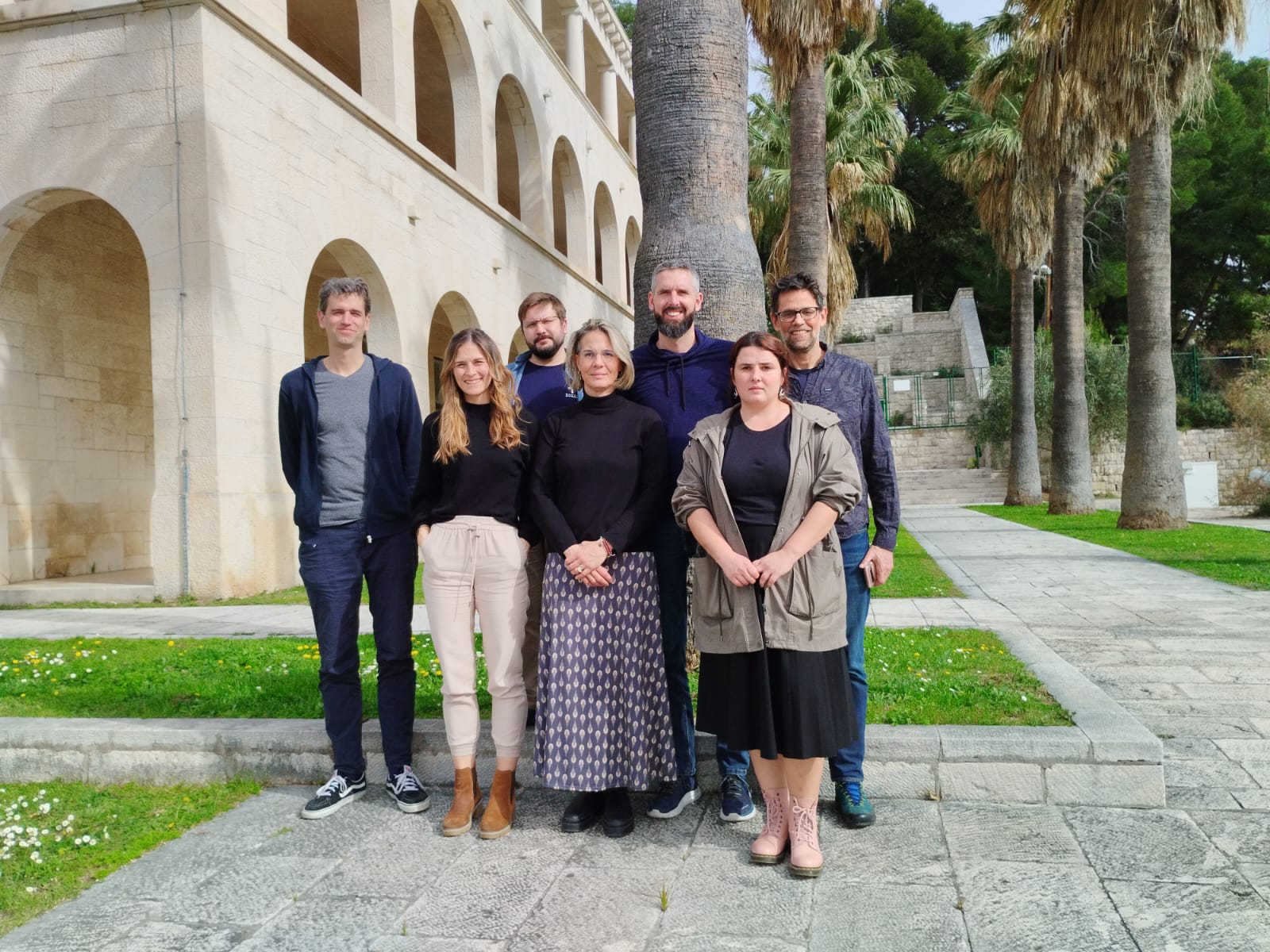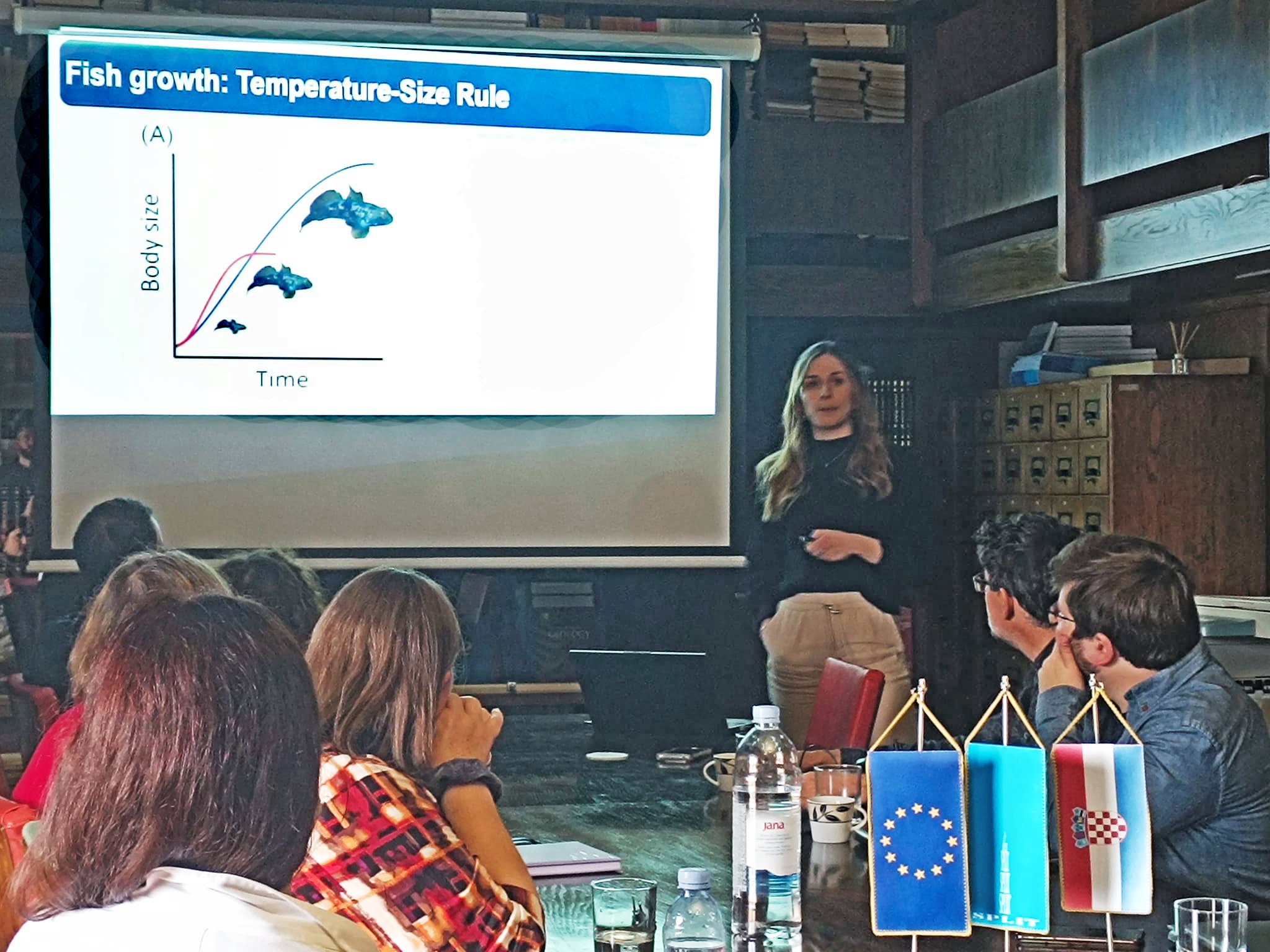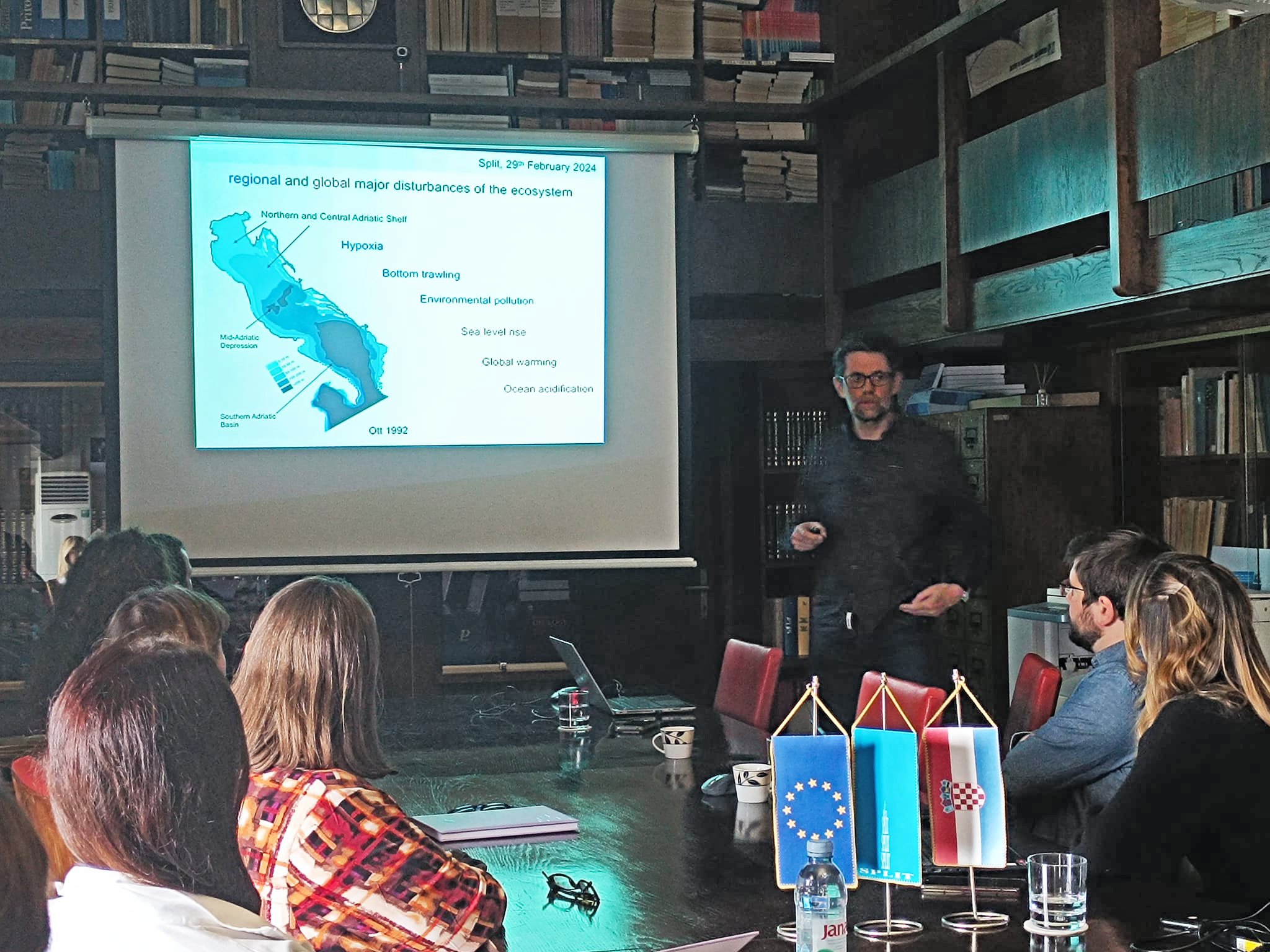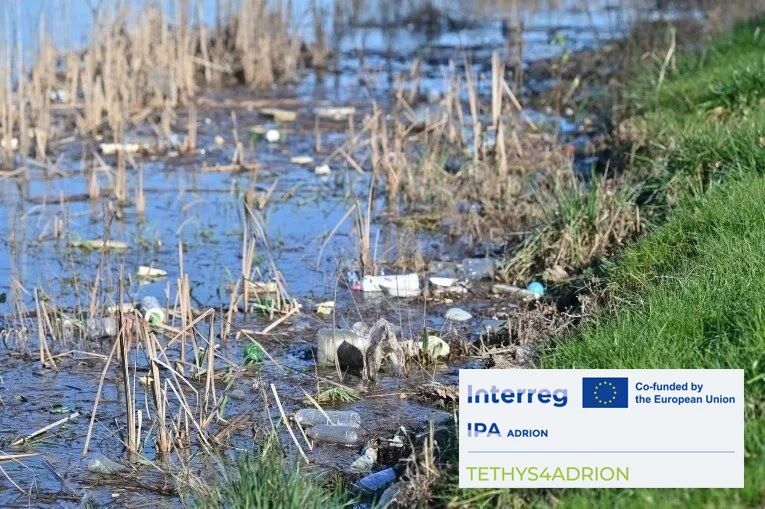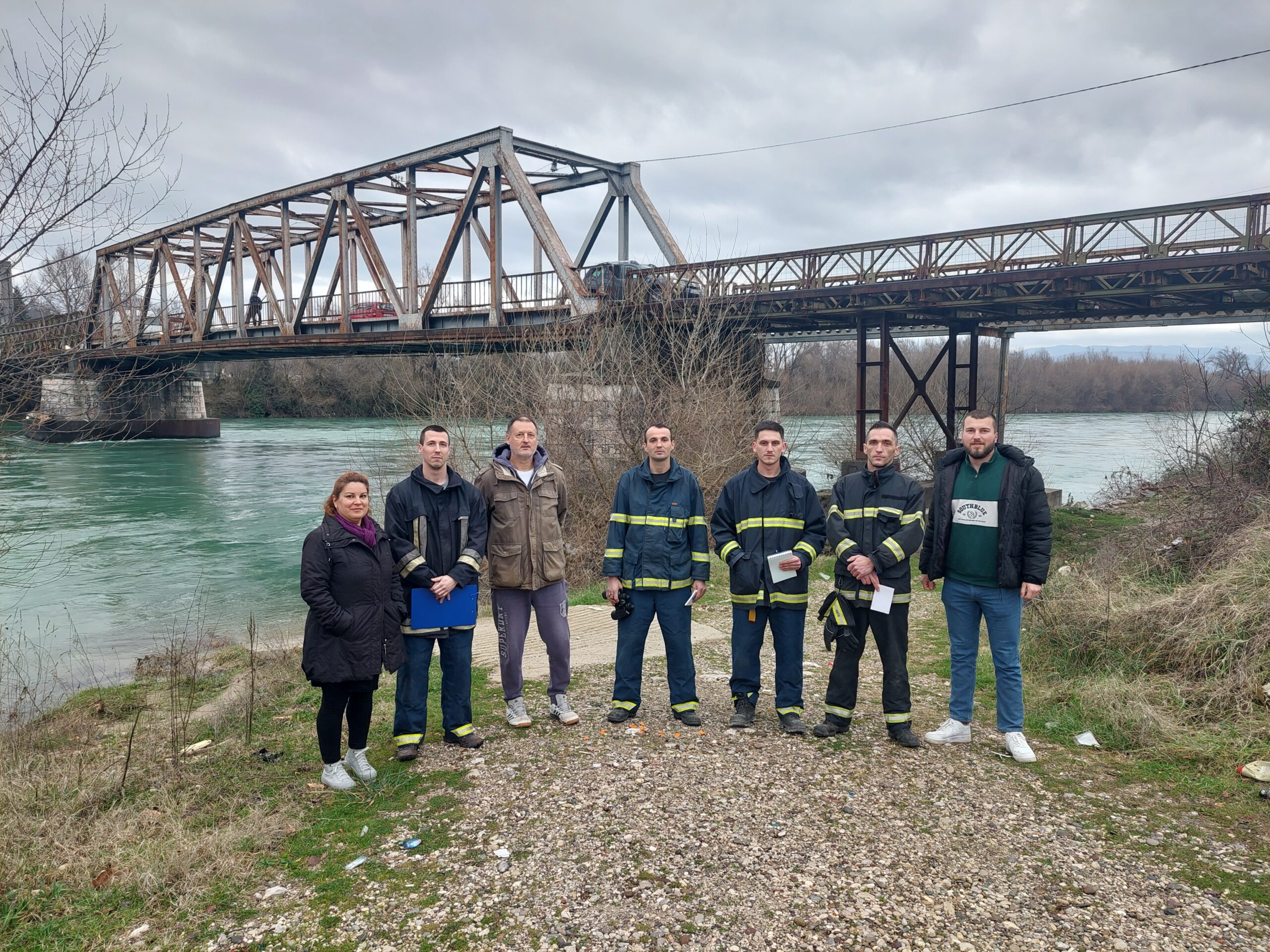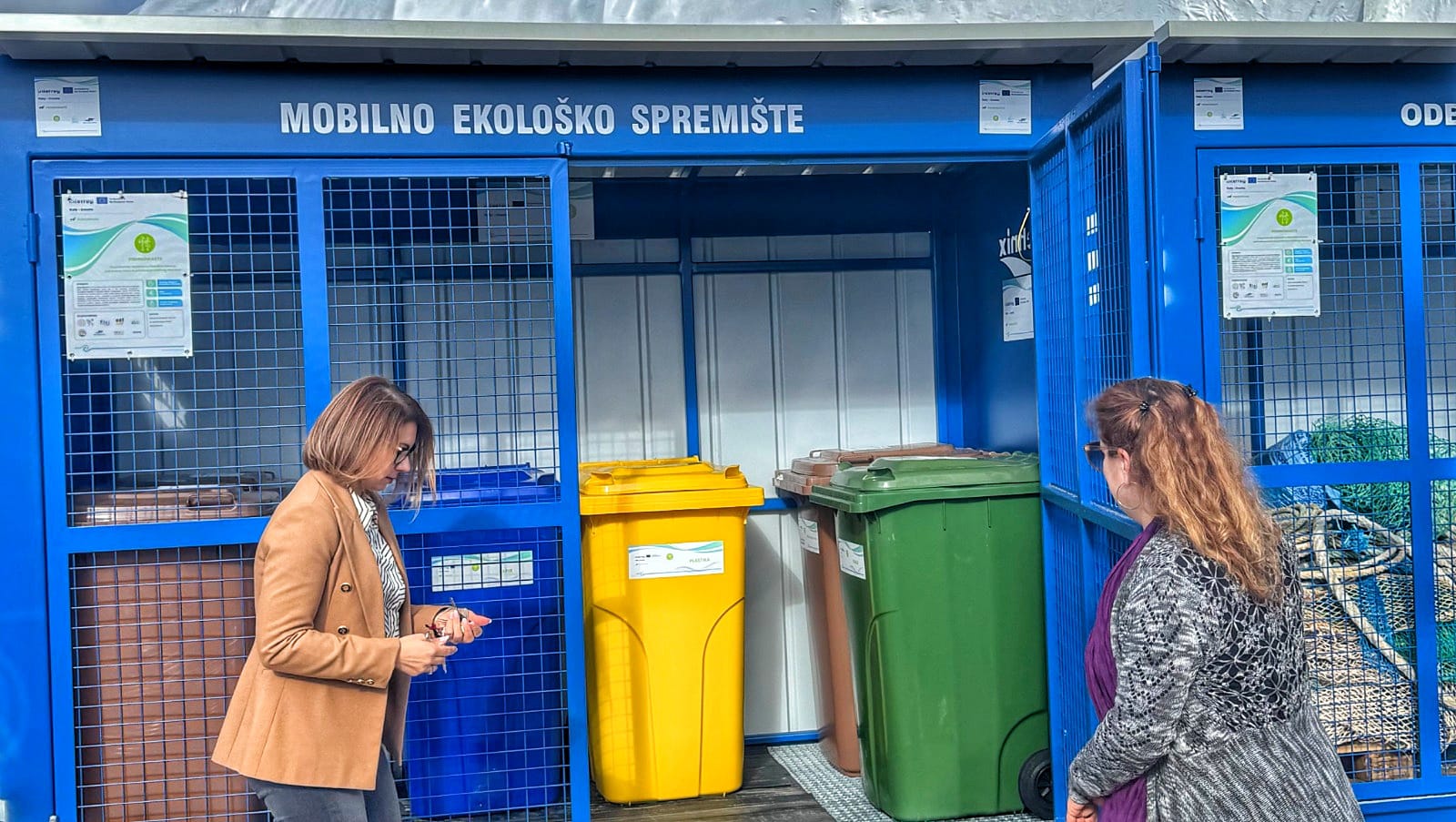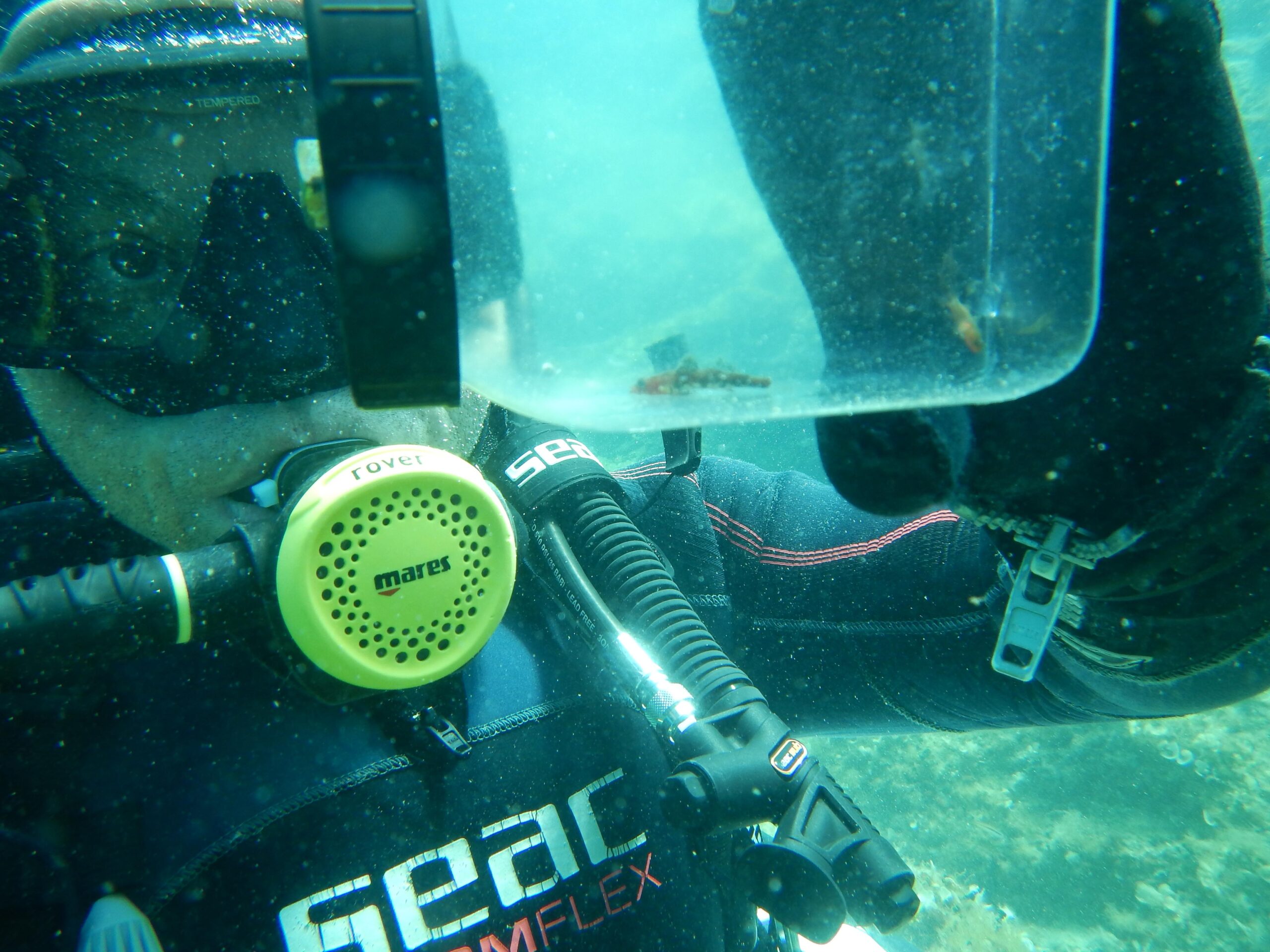This year we started a two-year bilateral cooperation project “Changes in the life cycle of marine bivalves under natural and human environmental changes: the perspective of conservation paleobiology”, which we are conducting in collaboration with the University of Vienna.
As part of the mentioned project, colleagues from the University of Vienna stayed at the Institute, the project leader, dr. Rafał Nawrot, prof. dr. Martin Zuschin, PhD student Isabella Leonhard and their associate, dr. Adam Tomasovych from the Slovak Academy of Sciences. During their stay at our institute, the project collaborators gave interesting lectures in which they introduced us to their work on uncovering the secrets of the northern Adriatic’s past.
Based on many years of successful work in the field of bivalve sclerochronology, our institute will carry out comparative analyses of bivalve growth on samples that are several thousand years old, but also on those that are alive today. We will pay particular attention to analysing the growth of the Arca noae, and the smaller bivalve species Varicorbula gibba, which is considered an important indicator of environmental change. In addition, we will also study the thanatocenoses (bivalve communities) of the coastal and deep-water areas of the Adriatic Sea.
Our scientists, dr. Melita Peharda Uljević, dr. Krešimir Markulin, and dr. Hana Uvanović will expand the scope of their research thematically through this project – in this case in the field of paleobiology and paleoceanography.
